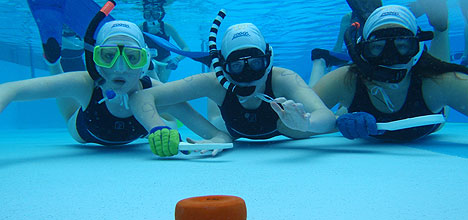The teenage years of a person’s life are filled with important milestones such as their first date, their first kiss, going to prom, learning how to drive a car, and struggling to learn how to fit in with their peers. The last thing on a teenager’s mind is a proper diet. While it may not be important to them, receiving the necessary amount of daily vitamins and minerals is very important to the long-term health and longevity of your teenager.
Vitamin D
Vitamin D is a very vital nutrient for the human body in terms of promoting strong bones, a healthy immune system, and blood sugar management. Unfortunately, most humans don’t consume the proper foods to receive enough vitamin D daily, so they eventually become vitamin D deficient. While every human needs Vitamin D, teenagers and growing pre-teens are at a special stage in their development where a vitamin D deficiency have long-term negative effects on their health. A simple vitamin D tablet of 1,000-2,000 IU once a day should properly supplement their daily diet.
Omega-3
Another powerhouse when it comes to healthy development, Omega-3 fatty acids are essential nutrients for the brain that promote healthy brain development. Professionals, like those at NeuroHealth Arlington Heights, know that according to the results of a pediatric neuropsychological study, Omega-3s have such a profound effect on the brain that they can be used to help treat and manage childhood behavioral disorders that extend into teenage years which develop due to brain dysfunctions such as ADHD. Adding an Omega-3 supplement would also be beneficial for your teen. A capsule dose of 300-100 mg daily will provide the essential Omega-3s your teen needs for healthy brain development.
Calcium and Magnesium
Calcium is the most famous mineral for promoting bone strength, but magnesium also plays a vital role in the health of our bones. Calcium works well with Vitamin D to help regulate blood sugar levels. Magnesium is a very important mineral for the body, aiding in the production of energy from food and enables nerves to function. A healthy daily calcium supplement ranges from 700-1,300 mg daily while a magnesium supplement should be 80-420 mg daily.
Multivitamin
A multivitamin is a broad-range precautionary supplement. It’s impossible to track every nutrient that your teen is eating or isn’t eating. Teenagers can also be very picky eaters, so getting them to eat the proper healthy foods is sometimes a war not worth fighting. Compromise instead on having them take a daily multivitamin to help supplement any vitamin or nutrient they might be lacking from their daily diet. Teens who are athletic, very physically active, or teenage girls close to their menstruating age should definitely be on a multivitamin to help support their changing bodies.
Before beginning a supplement regimen, always consult a physician before adding supplements to your teenager’s diet. There could be an unknown underlying health issue that could be exacerbated by a sudden change in their diet.



